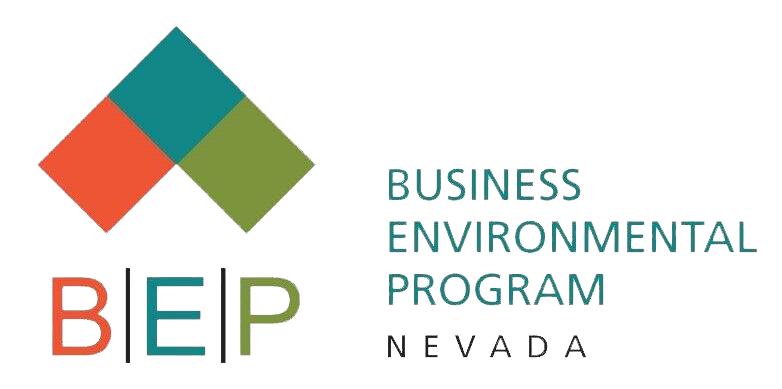Body art and body piercing establishments in Nevada include tattoo parlors and any establishment that does punctures the skin. There are many challenges to starting, restarting and managing your operation during good times, but additional challenges during the pandemic need even more careful planning, oversight and management. It is important to understand the COVID-19 requirements that may still apply to your industry, suggested best practices, and resources available to help you.
COVID-19 Requirements

Nevada’s Roadmap to Recovery lays out a requirements for businesses with specific capacity limits and other requirements Starting May 1st, 2021, the state transitioned to local authority for setting specific requirements by business types. Visit the Nevada Health Response website for the latest updates on COVID-19 Guidelines in Nevada.
To learn more about Nevada’s specific requirements for Body art and body piercing establishments, CLICK HERE.
Industry Best Practices
Some general best practices and tips that may help you comply with guidelines and help your clients and employees feel safe include:
- Require clients and employees to wear face masks
- Social Distance
- Stagger or limit arrivals of employees and clients, following current capacity limits
- Designate – with signage, tape, or by other means – six feet of spacing for employees and customers to maintain appropriate social distancing
- Install plexiglass/clear acrylic panels or barriers between the customer and cashiers
- Use phone or online reservations, discourage walk-ins, and have people wait outside or in their cars
- Have customers complete a self-assessment questionnaire prior to arrival
- Innovate
- Update your website to be mobile-friendly
- Install and use a touchless, non-signature payment system
- Have clients pay through an app on their phones
- Cleaning
- Have hand sanitizer and sanitizing stations and products readily available for employees and clients
- Launder all towels and linens between clients and completely dry items and store in closed, covered cabinets
- Throw away one use items such cotton swabs, gauze, and finger cots
- Establish new operating hours so you can close earlier to thoroughly clean the operation each night
- Use cleaning products that meet the EPA’s criteria for use against SARS-CoV-2 (the virus that causes COVID-19) – this list of products can be found on the EPA website here: List N: Disinfectants for Use Against SARS-CoV-2
- Read more about Cleaning and Disinfecting during a pandemic
Business Basics
Business basics are more important than ever. Evaluate your profit and loss statement. Look for ways to reduce operating costs. Analyze your cash flow and breakeven to evaluate the impacts of the new guidelines and best practices on your operations. As Nevada’s COVID-19 measures evolve you may need to continually adjust your operations. Here are a few things to think about:
- Get Help
- Contact a business development counselor at the Nevada SBDC by calling 800.240.7094 – we can help you assess your operations and decide on best strategies for your business
- For questions about cleaning and disinfecting, strategies to control new waste streams, or other environmental questions, contact an environmental business advisor at BEP at 800.882.3233
- Communicate
- Keep communicating with your customers on social media and your website with announcements about your current hours and new or expanded services so your customers understand your current operations
- Be open about the measures you are taking to meet guidelines; consider signage at your entrance so customers can be aware of the steps you are taking to prevent the spread of COVID-19 and to meet new industry guidelines
- Expand Services
- Offer gift cards
- Consider offering an on-line reservation platform for your clients
- Consider offering service or product sales that are an “add-on” to scheduled services to reduce client visits and PPE/disinfection cycles
- Offer hours of business that are most popular or stagger days and schedules to offer services that closely match clients’ schedules
- Offer product kits and sales of product to reduce inventory and satisfy customer needs
- Potential Cost-Saving Measures
- Reduce hours to minimize utility bills and increase time for cleaning, for example instead of staying open from 12:00 PM to 10:00 PM operate from 5:00 PM to 10:00 PM.
- Only turn on utilities that are needed – do not use all fans, lights, or air conditioners in the shop when there are fewer people
- Consider energy efficiency, waste minimization and other sustainability strategies
- Creative Marketing
- Update or redesign your website; make sure it is mobile friendly
- Use micro social media to focus more on your immediate neighborhood to bring in local customers
- Advertise through local homeowner associations
- Consider starting or expanding client referral programs
Resources
- Nevada Health Response: Business and Industry Compliance
- Nevada Health Response
- Nevada Department of Business & Industry, Occupational Safety & Health Administration
- Southern Nevada Health District (SNHD) COVID-19 Guidance for Businesses and Permitted Facilities
- Nevada Governor’s Office of Economic Development
- Center for Disease Control (CDC) Guidance
- US EPA List N: Disinfectants Approved for Use Against SARS-CoV-2
- Small Business Federal Financial Assistance
- U.S. Securities Exchange Commission Resources for Small Business



